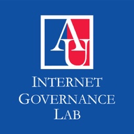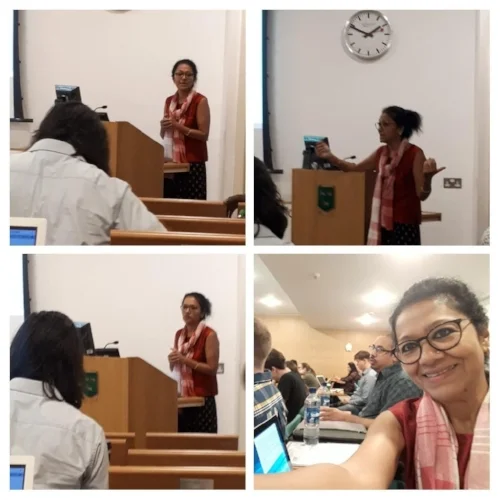By Erica Diya Basu
Internet Governance Lab Doctoral Researcher Erica Diya Basu presented her initial work-in-progress findings from her field research at the 20th edition of the Annenberg-Oxford Media Policy Summer Institute at the University of Oxford on August 3, 2018. Her PhD research examines the role of civil society organizations in shaping digital privacy discourse and influencing data protection policies in India.
Erica’s presentation elicited engaged discussions about digital privacy and data protection as both a media policy and an international trade negotiation tool, under girded by issues of cybersecurity, surveillance, and personal freedoms, and the power of large technology giants in developing digital economies like India.
Erica noted, “My presentation was even more pertinent against the backdrop of the government’s Committee of Experts presenting the first draft of India’s Personal Data Protection Bill to the Government on July 28, since I argue that the formulation of this bill has been a catalyst in driving public discourse about digital privacy and data protection in India.” She noted that the Indian government has since invited public comments from stakeholders to be submitted by September 10 and civil society organizations in India have been very actively amplifying the public comment process on Twitter, adding more meat to her field research findings.
The Annenberg-Oxford (AnOx) Media Policy Summer Institute is a joint program by The Annenberg School for Communication at the University of Pennsylvania and the Programme for Comparative Media Law and Policy at the University of Oxford. Started by noted communication scholar Monroe Price, AnOx brings together media scholars, educators, activists, and public policy experts who have a stake in the way media policy is shaped, formulated, and implemented around the world.
AnOx 2018 focused on emerging media policy issues related to the digital era. Daily session topics included media policy issues around norms setting and regulatory frameworks for freedom of the press and freedom of expression; media ownership trends; data protection and digital privacy policies and challenges at national and international levels; propaganda; misinformation and trust; online censorship; net neutrality; and the algorithmic public sphere.


